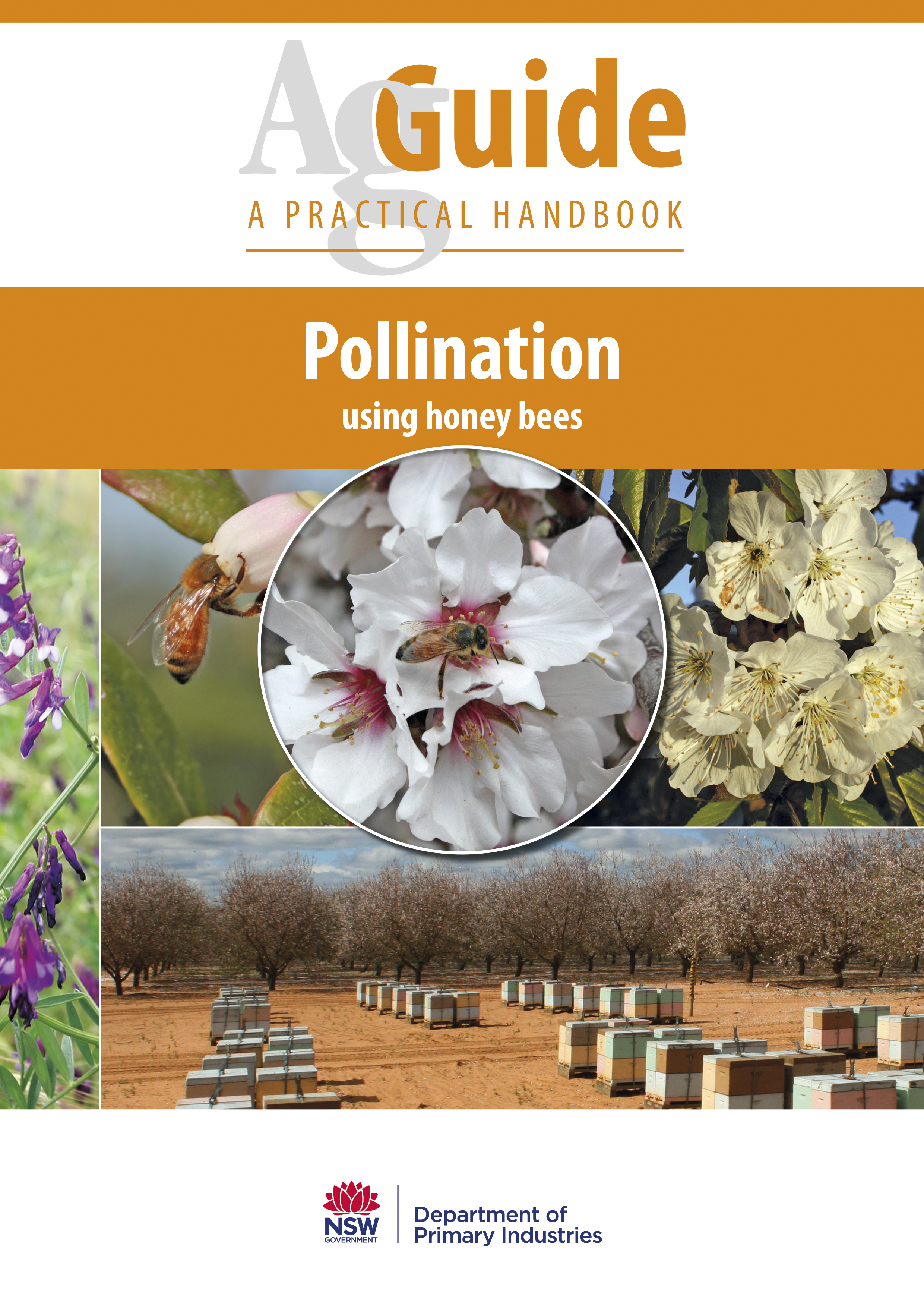
New guide to boost bee pollination
3 May 2018

Preparing and maintaining bees for the vital task of pollination is the focus of the new AgGuide Pollination using honey bees, recently released by the NSW Department of Primary Industries (DPI).
Beekeepers and growers of horticultural crops, broadacre crops and pastures all benefit from bees visiting flowers.
Lead author and NSW DPI Honey Bees Technical Specialist, Dr Doug Somerville said the new guide provides information for beekeepers to ensure their bees are fit for pollination and informs crop growers on creating an environment that will provide the best results.
“Honey bees are the major insect pollinator of a significant number of flowering crops. Without them it is unlikely that many important crops would be economically viable,” Dr Somerville said.
“Recent estimates value honey bee pollinations at $3-4 billion dollars to the Australian economy.
“Australia has approximately 10,000 beekeepers managing over half a million honey bee hives which are potentially available for contract pollination.
“The guide was developed following the success of the course - Using Bees for Pollination - delivered at Tocal College last year.”
Dr Somerville said various topics are covered in the guide including: honey bee colonies; nutrition for bees; health problems; hive strength; and size of the operation.
“Beekeepers can learn about orchard design and management, managing hives on the crop, netting and glass houses and post pollination hive management,” Dr Somerville said.
“Also, the important topic on how to make a business agreement between grower and beekeeper is covered in the guide.”
The AgGuide Pollination using honey bees is available for purchase from Tocal College in printed and eBook formats online www.tocal.nsw.edu.au or phone 1800 025 520.
To register your interest in the nationally accredited course “Using bees for pollination” delivered around NSW, please email: paterson.tocal@dpi.nsw.gov.au
Media contact: Anne Brook (02) 6763 1163 or 0477 358 305

